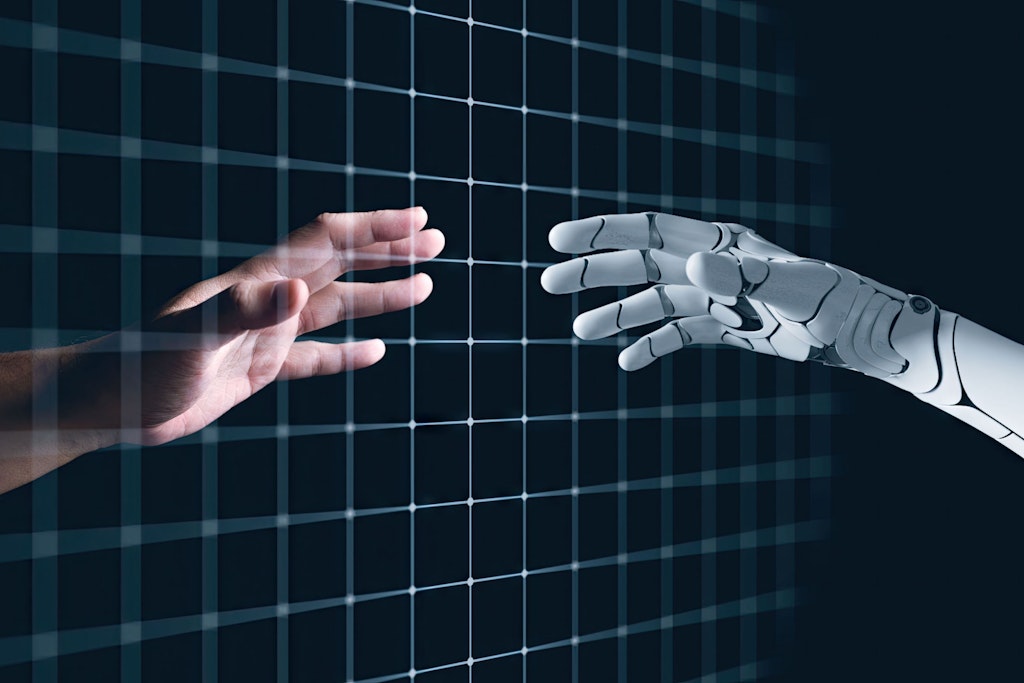Crucial aged care skills AI can’t replace
Last updated on 7 June 2023

Aged care is embracing technology with open arms and for good reason; it’s reducing manual task burden and disorganisation caused by paper trails. Walking hand in hand with technology, though, is artificial intelligence which brings quite a bit of the unknown.
Its impact on aged care might not be fully realised for decades. There will be plenty of good, but also worry as people question what tasks or skills it might replace.
Could AI really take over, though? Perhaps one day. But for now, there are crucial skills AI and technology just can’t replace.
Direct care ability
It goes without saying, but AI can’t provide direct care for residents or home care clients. It just doesn’t have the skill or capacity to. Well, not just yet. AI is present in aged care settings, including smart devices that can help map movements and predict falls within the home or a resident’s room.
But as innovative as that is, it’s not quite direct care. AI can’t take the role of nurses or personal care workers. The ability to monitor, respond and treat ageing residents is a skill solely held by humans and there’s no way for technology to take over.
Creativity
Artificial intelligence can create many things; implausible images, fake song covers and mini-essays. But there’s one thing artificial intelligence lacks; genuine creativity. The best AI creations still have to be fed ideas by a person, and ultimately, human creativity has to be present to achieve the best outcomes.
Creativity and innovation keep aged care humming along and there’s no chance of replication. New models of care, resident activities and even room design all need creativity. And when artificial intelligence is based on creating content from existing ideas, you will really struggle to develop something new for aged care.
Empathy/emotional intelligence
Your ability to identify, understand and manage your emotions is unique; the tactics you use when feeling stressed or anxious are different to another person’s. In addition, the way you recognise and support the emotions of others is going to be different from your colleague’s approach. These features of emotional intelligence are purely human and AI cannot match it within the aged care setting.
Likewise, it’s the ability to emphasise with residents and staff going through tough times which is human nature. Empathy is a critical trait for aged care workers and technology may mimic emotions, but it lacks the true empathy available through the combination of words, actions and expressions.
Time management
Aged care can be wild and unpredictable. You could be doing the rounds when a resident needs urgent care, and suddenly, your next task becomes a distant memory. Or perhaps you have a day of meetings and one runs overtime, then another, and you’re left rushing to finish off emails you expected to have more time for.
Artificial intelligence can’t help as there’s no ability for it to manage your time or react when things change suddenly. It’s still up to us to organise our days and ensure we’re on track with each and every task.
That’s not to say technology can’t help. There are plenty of examples where technology has successfully reduced the amount of time workers spend on repetitive tasks, but that’s more so helping you to focus and become more productive with the tasks that are most important, such as building relationships and interacting with residents.
Problem-solving and critical thinking
If you have to think up a new solution on the spot, would you rely on Google for the answer? Not really. You would use problem-solving skills and critical thinking to assess the situation, determine what works and what does not, and develop a new plan from there. That kind of on-the-spot adaptability is essential in aged care and it’s not going to come from technology.
Leadership and guidance
Your skills are what make you a worker or a leader. And all of the skills mentioned so far have one thing in common: they’re good leadership skills. From compassion and empathy to time management and organisation, great leaders should have skills across the board that everyone benefits from.
There’s no way for AI to copy that. AI can’t inspire or replicate innovative thinking or the motivations that drive leaders. AI lacks the same reliability and trustworthiness true leaders possess. So no matter how you might choose to adopt artificial intelligence and new technologies within the business, leadership will always remain unmatchable by technology.